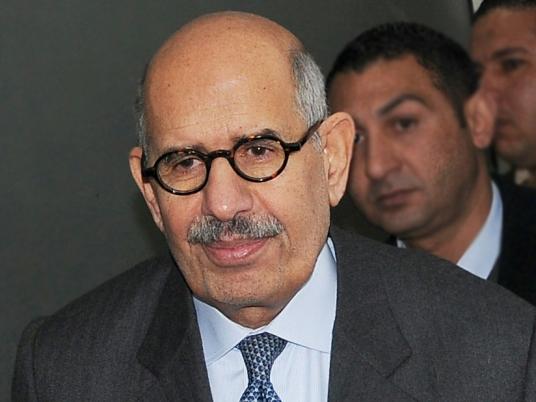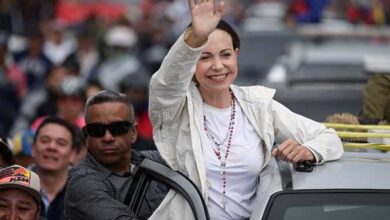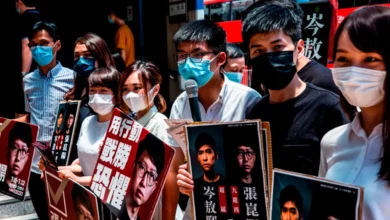
Mohamed ElBaradei’s withdrawal from the presidential race indicates that the country’s democratic transition is a failure, politicians say.
“It’s a message that there is no democratic transition taking place, and that the revolution has been derailed,” said Haitham Abu Khalil, co-founder of the Reyada Party. “This brings his project back to square one.”
Abu Khalil added that Egypt’s ruling generals bear absolute responsibly for ElBaradei’s withdrawal because they want to maintain their grip on power.
“ElBaradei has a project that aims at decreasing the influence of the military over civilian rule,” said Abu Khalil.
“The military council, headed by the former president Hosni Mubarak's defense minister of 20 years, has insisted on going down the same old path, as if no revolution took place and no regime has fallen," ElBaradei said in his statement.
MP Abul Ezz al-Hariry believes ElBaradei withdrew due to parliamentary election results that were in favor of Islamists, whom ElBaradei believed would fail to transform Egypt into a democratic state.
Abdel Rahman al-Gohary, coordinator of the Kefaya Movement, said ElBaradei’s decision forces other presidential candidates to either imitate him or present a united front, urging the military council toward reform.
“ElBaradei has evaluated the political scene well,” he said, criticizing the military council’s domination of the transition period.
Reactions to Mohamed ElBaradei’s withdrawal from presidential elections varied within political circles,
However, some political activists argued that ElBaradei was shooting himself in the foot by withdrawing from the presidential race.
“ElBaradei blew his chance,” said Mohamed Ghoneim of the Revolution Continues Coalition, adding that his decision came at the wrong time and without a real justification.
“But we must respect his wish,” said Ghoneim.
Translated from Al-Masry Al-Youm




